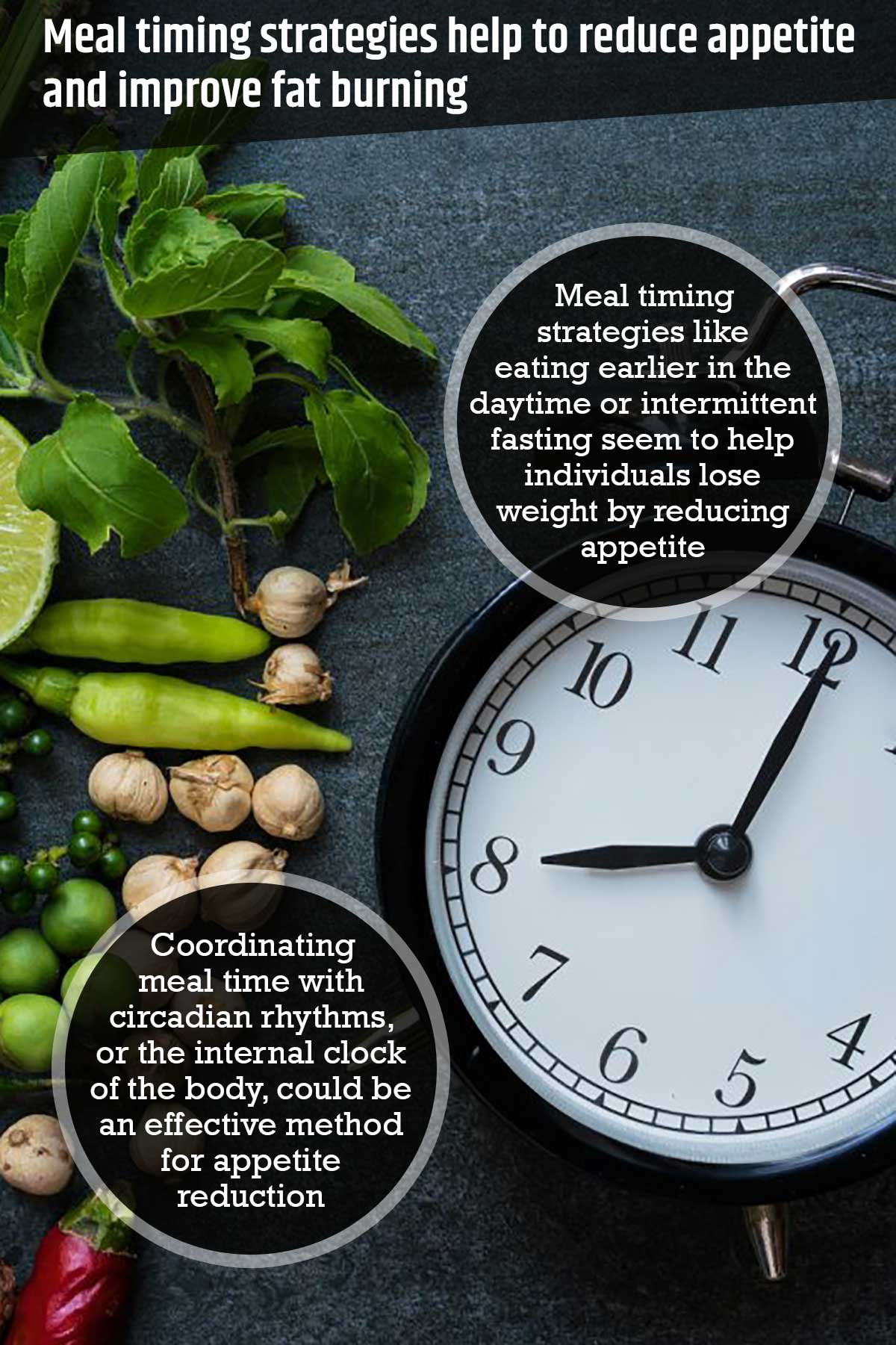According to researchers, meal timing strategies like eating earlier in the daytime or intermittent fasting seem to help individuals lose weight by reducing appetite instead of burning more calories.
The study reveals how meal timing has an effect on 24-hour energy metabolism when intake of food and meal frequency is matched. Coordinating meal time with circadian rhythms, or the internal clock of the body, could be an effective method for appetite reduction and the improvement of metabolic health.1✅ JOURNAL REFERENCE
DOI: 10.1002/oby.22518
The study also reveals that meal timing strategies could help individuals in burning more fat in a 24-hour period on average.
Early Time-Restricted Feeding (eTRF), a type of intermittent fasting when dinner is eaten in the afternoon every day, helped in improving the ability to change from burning carbohydrates for energy to burning fat for energy, an element of metabolism called metabolic flexibility.
Eleven adult women and men who had excess weight were enrolled for the study. Individuals aged 20 – 45-years and in general good health were permitted to take part if they had a bodyweight between 68 and 100 kg, a BMI between 25 and 35 kg/m2, regularly going to bed between 9:30 p.m. and 12 a.m., and a regular menstrual cycle for women.
Individuals experimented with 2 different meal timing strategies randomly ordered: a control schedule where individuals ate 3 meals in a 12-hour period having breakfast at 8:00 a.m. and having dinner at 8:00 p.m., and an eTRF schedule where individuals ate 3 meals spanning a 6 hour period having breakfast at 8:00 a.m. and having dinner at 2:00 p.m.
The same quantities and kinds of foods were eaten on both of the schedules. Daily fasting periods for the control schedule were 12 hours, while the daily eTRF fasting schedule was 18 hours.
Individuals adhered to the different schedules for 4 days consecutively. On the 4th day, the metabolism of individuals was measured by putting them in a respiratory chamber where the amount burned of calories, carbohydrates, fat, and protein were measured.
The appetite levels of individuals were also measured every 3 hours while awake, and also hunger hormones in the morning and evening.
Even though eTRF didn’t significantly affect how many calories were burned, it was discovered that eTRF did reduce levels of the hunger hormone ghrelin and improved some elements of appetite. Fat-burning was also increased in the 24-hour day.
Previous research has been conflicting on whether or not meal timing strategies benefit weight loss by helping individuals burn more calories or by reducing appetite.
Rodent studies indicate more calories burned with such strategies, but human study data has been conflicting, with some studies indicating that calories burned are increased with meal timing strategies, but other results revealed no difference.
However, prior studies didn’t directly measure the number of calories people burned.



